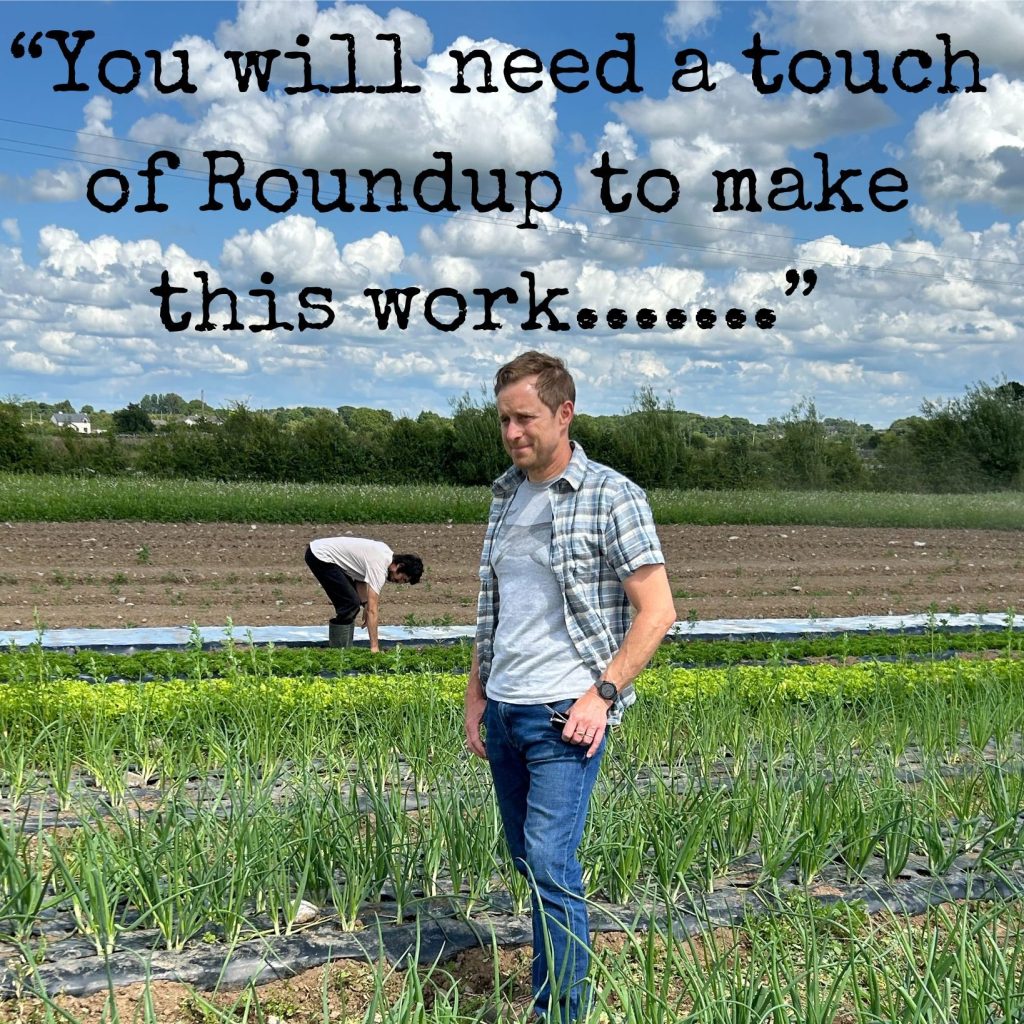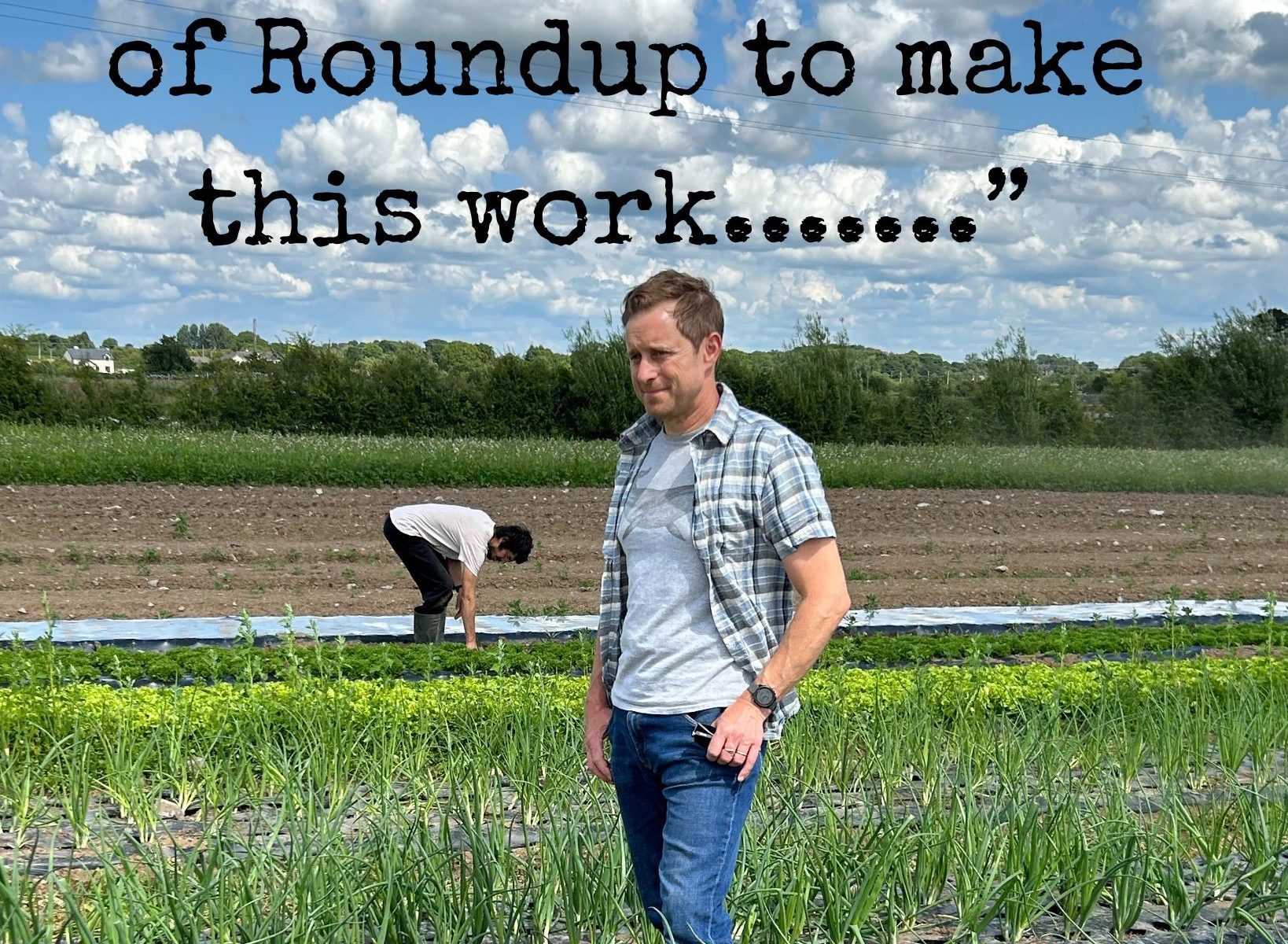Over the last couple of months, I had forgotten how grounding growing food is. On a sunny day walking through the crops, you feel alive. It’s the vibrancy of nature that recharges us, don’t we have a duty to protect this fragile system of life?

“You will need a touch of Roundup to make this work” some friendly advice 18 years ago imparted to us on our vegetable growing journey. Needless to say, we did not take it!
Using chemicals to fight nature will never work. In the short term it may give a temporary reprieve from a certain disease or pest, but that pest will come back stronger and more resistant next time. It is in a way a self-perpetuating industry.
I spent a good percentage of my early life studying and working with chemistry and I am thankful for the many benefits modern science makes possible, but synthetic toxic chemicals have no place in our food chain, end of story.
Our organic farm is situated in rural Ireland and it is beautiful in its own way it’s vibrancy is defined by a myriad of greens, and flowers and it overflowing with life.
Once upon a time, flowers and mushrooms were commonplace in fields of grass around our lovely country, not so anymore. I don’t know about you, but the sight of a cowslip flower transports me back in time, to a time when the fields next to our family home were full of these beautiful flowers.
Sadly, today, these flowers are not to be found in most farm grasslands, they have all but disappeared (as have the button mushrooms that also used to be commonly found in meadows).
The reason sadly: the common use of artificial fertiliser and herbicides. Many of these grass tracks are sprayed to remove anything that is not grass, depriving the land of variety, variety being the cornerstone of all life. Such is the way of much of our production systems these days, large monocultures, engineered to produce at all costs.
The one common theme that can be found in all of these food systems generally starts with a application of the chemical glyphosate which as a molecule looks benign enough, but is far from benign.
The active ingredient in Roundup: glyphosate is the most widely used herbicide in human history, nearly 10 billion kg have been used globally. It is a probable-carcinogen and it now contaminates most non-organic food stuffs. It is systemic in nature which means if it is sprayed on a crop then it gets absorbed and sits inside it. It destroys all life, and leaves fields barren and dead.
Surely the production of food in a way that contributes to our health and the health of the planet, a way that enhances and protects biodiversity, a way that encourages working with nature rather than against it must be the best way to grow food?
The funny thing is that usually this type of approach produces food that tastes great, is better for us and is also better for our land. Your support makes it possible, and during the summer we need it more than ever, thank you.
Kenneth

